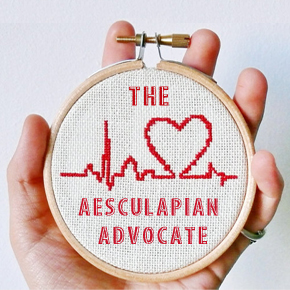President Obama’s executive actions on immigration over the past few years have been met with reactions of both jubilation and opposition. At the border in the Rio Grande Valley, the new law’s effects are acutely felt within a community that prides itself on the blending of American and Mexican culture. The new rules will allow countless mixed status families to remain intact without fear of deportation.
Residents of the Rio Grande Valley in Las Milpas live only five miles from the border city of Pharr and the central transportation artery of U.S. Highway 281. However, for those suffering from mental illness, their community might as well be located a world away.
As senior medical students participating in the Community for Children clinical elective at the University of Texas Health Sciences Center San Antonio, our class spent a month in the Rio Grande Valley in a whirlwind of professional development and advocacy training. Working with ARISE, a community-based non-profit organization with over 25 years of experience in the most impoverished communities, or colonias, we have taken a crash-course on mental health resources in the Rio Grande Valley. As medical students who have completed basic training recognizing symptoms of common mental illnesses such as depression, anxiety and chronic stress, we have witnessed the great burden of disease among residents in the colonias and similar communities throughout the Valley. While some may argue there exist local psychiatrists and mental health support groups, they are often unable to serve the region’s most vulnerable patients who lack access to healthcare. The new executive order makes no provision for healthcare, let alone mental health services.
Here in the Valley, there are fewer than three psychiatrists per 100,000 residents, which is only a quarter of the national average of 12 psychiatrists for every 100,000 residents. Highlighting the alarming need for more mental health experts in the region, a 2013 article published in a local Rio Grande Valley paper “The Monitor” noted that a Texas National Alliance on Mental Illness official called the Rio Grande Valley “the forgotten land” of mental illness. In the same article, Dr. Robert Mosqueda, a McAllen-based child and adolescent psychiatrist, noted: “The shortage [of mental health providers] is not the problem. The problem is the ignorance.” Many people are ignorant of the symptoms of chronic stress and depression that result in decreased quality of life, unless, of course, they are actively living it.
As future medical professionals, we had the honor of meeting with and counseling an innumerable number of residents who were caring for close family members or suffering from mental illness themselves. Still, many people are unaware mental illness needs treatment and it is one of the most successfully treatable diseases. We encourage the community to reduce the stigma and misconception that mental illness is hopeless.
Even as outsiders, is not difficult to see whey a general feeling of despair prevails. Well before the President’s executive order, as national scrutiny of immigration policies intensified, there has been increased militarization of border communities. The community’s outrage caused by the effects of the daily intrusion and profiling experienced by Valley residents, which leads to chronic stress, was clearly evidenced at a rally in early October 2014. Over 100 people came to support the march in solidarity for refugees and immigrants organized by the South Texas Human Rights Center.
The march, which began at Hope Park adjacent to the International Bridge and continued along Elizabeth Street through downtown Brownsville, began with a powerful symbol. A child’s coffin lead the procession, a potent reminder of the injustices we must take responsibility for as a country. For example, the recent humanitarian crisis of over 40,000 unaccompanied migrant youth that came to a peak this past summer. We have witnessed symptoms of posttraumatic stress disorder suffered by children as young as six when their families are violently torn apart by deportation.
As people who have dedicated our lives to healing, we have been incredibly privileged to play a small role in raising community awareness of the mental illnesses that can affect each one of our lives. It is a powerful message: you are not alone. We are all settlers of a country that may at times forget its immigrant roots; the omnipresent fear in this community is real. The goal: to create a safe space to share experiences and accompany each other through mutual suffering.
In training other community members with the tools of supportive listening, we can empower the community to serve as the easily accessible therapeutic outlet that it most desperately needs. As outsiders like myself, it is inspiring to see ARISE empowering the community from within. No matter what the future of immigration reform will bring, we accompany our friends to begin the healing process on the front lines of suffering and fear.
A column reflecting on the privileges and responsibilities we have as physicians-in-training to advocate for those who do not have the power to do so themselves. Devoted to issues of social justice and health equity, this column hopes to spark conversations and inspire action within each reader’s community at large.

